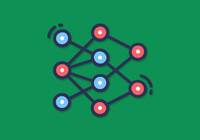In the competitive landscape of AI development, the efficiency of training workflows is paramount. JuiceFS, a cloud-native distributed file system, plays a crucial role in optimizing these workflows. By focusing on scalability, performance, and integration, JuiceFS shares essential strengths with fal’s AuraFlow and Tigris Data’s global object storage, enabling more effective AI training environments.
Here are some highlights from our partners’ posts:
- Introducing AuraFlow v0.1, an Open Exploration of Large Rectified Flow Models
- Sharing Your Ollama Models Between Fly Machines Using JuiceFS and Tigris
Scalability for large AI workloads
JuiceFS provides scalable storage that seamlessly accommodates the growing data needs of AI training. AuraFlow’s use case shows as models and datasets expand, JuiceFS ensures continuous, efficient access to massive amounts of data in and out of multiple nodes, which also scales AI workflows effortlessly.
Optimized data handling
JuiceFS is engineered for high-performance data access, offering low-latency and high-throughput capabilities that accelerate AI training processes. Tigris Data’s guide about sharing Ollama dataset ensures smooth and efficient AI pipeline execution.
POSIX compatibility for seamless integration
JuiceFS is fully POSIX-compatible, which means it can be used like a traditional file system with minimal modifications to existing applications. This compatibility ensures that AI training environments can integrate JuiceFS easily, leveraging its advanced features without the need for significant changes to workflows or tools. This seamless integration aligns with AuraFlow’s ability to work smoothly with diverse AI platforms, making both tools valuable for efficient AI development.


















